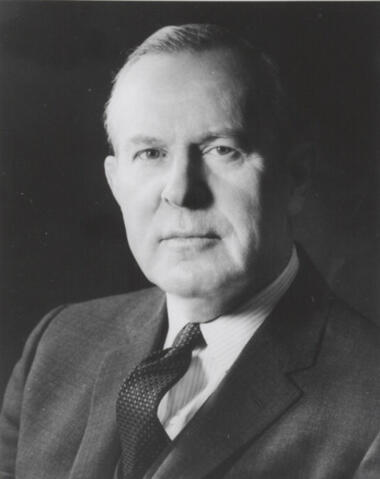
Title and statement of responsibility area
Titel
Lester B. Pearson - Portrait
Algemene aanduiding van het materiaal
- Graphic material
Parallelle titel
Overige titelinformatie
Title statements of responsibility
Titel aantekeningen
Beschrijvingsniveau
Stuk
archiefbewaarplaats
referentie code
Editie
Editie
Edition statement of responsibility
Class of material specific details area
Statement of scale (cartographic)
Statement of projection (cartographic)
Statement of coordinates (cartographic)
Statement of scale (architectural)
Issuing jurisdiction and denomination (philatelic)
Datering archiefvorming
Datum(s)
-
1965 (Vervaardig)
Fysieke beschrijving
Fysieke beschrijving
1 photograph : b&w ; 10 x 8.5 cm
1 negative : b&w ; 12.5 x 10 cm
Publisher's series area
Title proper of publisher's series
Parallel titles of publisher's series
Other title information of publisher's series
Statement of responsibility relating to publisher's series
Numbering within publisher's series
Note on publisher's series
Archivistische beschrijving
Naam van de archiefvormer
Geschiedenis beheer
Bereik en inhoud
Head and shoulders image of Lester B. Pearson, Prime Minister of Canada, at the time of presentation of an honorary Doctor of Laws Degree by the University of Saskatchewan, Regina Campus, during their first convocation in May 1965.
Bio/Historical Note: Lester Bowles (Mike) Pearson was a Canadian scholar, statesman, soldier, prime minister and diplomat who won the Nobel Peace Prize in 1957 for organizing the United Nations Emergency Force to resolve the Suez Canal Crisis. Pearson was born in 1897 in Newtonbrook in the township of York, Ontario. He was the 14th prime minister of Canada from 1963 to 1968, as the head of two back-to-back Liberal minority governments following elections in 1963 and 1965. During Pearson's time as prime minister, his Liberal minority governments introduced universal health care, the Canada Student Loan Program, the Canada Pension Plan, the Order of Canada, and the Maple Leaf flag. His Liberal government also unified Canada's armed forces. Pearson convened the Royal Commission on Bilingualism and Biculturalism, and he kept Canada out of the Vietnam War. In 1967 his government passed Bill C-168, which de facto abolished capital punishment in Canada by restricting it to a few capital offences for which it was never used, and which themselves were abolished in 1976. With these accomplishments, together with his groundbreaking work at the United Nations and in international diplomacy, which included his role in ending the Suez Crisis, Pearson is generally considered among the most influential Canadians of the 20th century and is ranked among the greatest Canadian prime ministers. Pearson died in Ottawa in 1972.
Aantekeningen
Materiële staat
Directe bron van verwerving
Ordening
Taal van het materiaal
Schrift van het materiaal
Plaats van originelen
Beschikbaarheid in andere opslagformaten
Restrictions on access
There are no restrictions on access.
Termen voor gebruik, reproductie en publicatie.
Photographer: Ashley & Crippen Photographers, Toronto
Copyright holder: Unknown
Other terms: Responsibility regarding questions of copyright that may arise in the use of any images is assumed by the researcher.
Toegangen
Associated materials
Aanvullingen
Location note
Vol. 82 / Vol. Neg. 13

